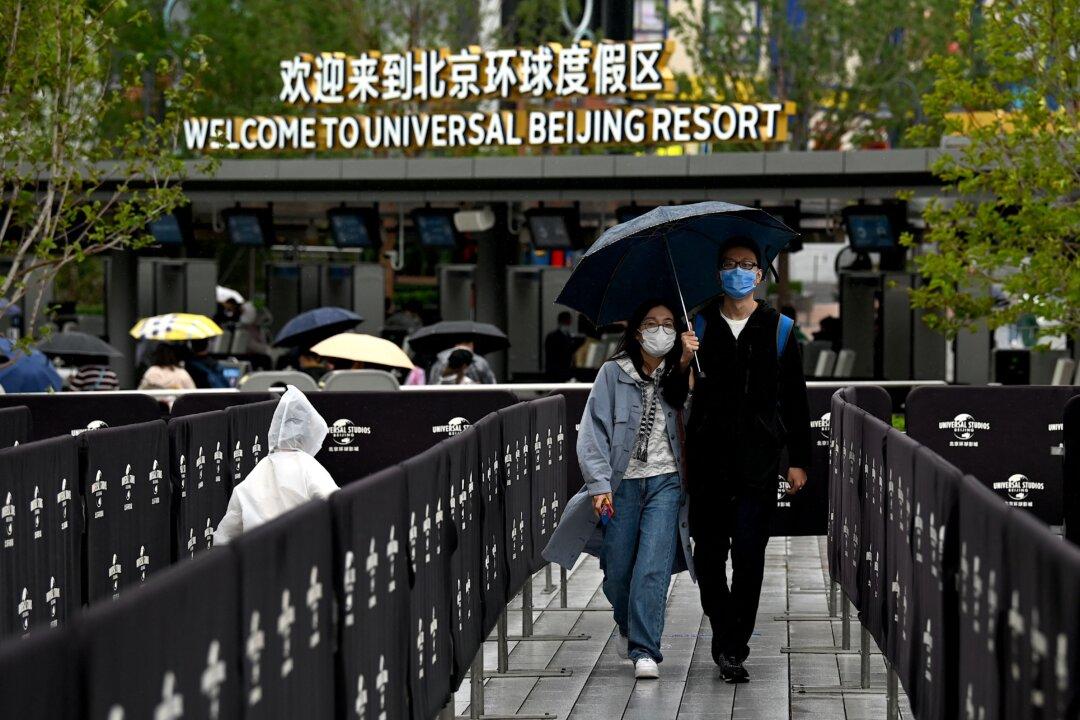Beijing Universal Studios opened to the public on Sept. 20 after twenty years of preparation. The resort welcomed 10,000 visitors but trash was seen everywhere within three hours of opening.
Chinese media criticized the resort for not arranging enough trash bins. But Chinese netizens said in comments on the reports that some Chinese people don’t have a habit of throwing trash in bins, leaving all parks in mainland China dealing with trash issues.





